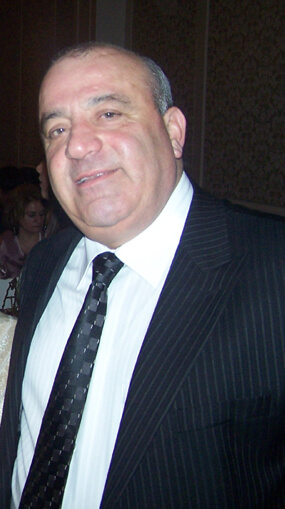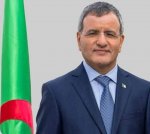Chicago’s Future News newspaper continues to set American Arab trends
By Ray Hanania

Mansour Tadros left Naour, Jordan near Amman and followed his father to the United States hoping to build a new life of freedom and opportunity.
But in the end, Tadros, 65, has spent most of his time defending the American Arab and Muslim community against rising bigotry and bias, much of it stemming from the terrorist attacks that struck New York and the Pentagon on Sept. 11, 2001.
Tadros is the publisher of one of America’s most successful American Arab newspapers, The Future News (Al Mustaqbal, in Arabic), a project that has survived on his ability to do what most American Arabs do, hold down multiple jobs while paying for his efforts to help Arabs out of his own pocket book.
This month, after 13 years of publishing the popular Chicago based twice-monthly newspaper, Tadros announced that it would no longer be distributed free of charge and he imposed a $1 sale price at the counter. And so far, the sales are doing well.
Tadros says his idea, which is one of the first American Arab newspapers to charge customers to pay for it, instead of distributing it for free, gives it a value and will help change the American Arab lack of self-respect.
“We Arabs in America don’t have a lot of respect for ourselves, but we sure do complain a lot,” Tadros explained during an interview with the Arab Daily News this week.
“We pay to purchase mainstream American newspapers that are filled with anti-Arab hatred, criticism, lies and distortions about our people, yet we won’t support a newspaper that is a reflection of our own community that is published in English and in Arabic. I think that must change if we are going to improve.”
Tadros is right. There are more than 95 American Arab newspapers published in the United States. Most are either monthly or are published twice monthly. Only one, in Detroit, is published each week. All are distributed free of charge on the counters and windows and even floors of American Arab ethnic grocery and retail stores.
Many of the Arab newspapers have not lasted very long and start-ups are common.
“Someone decides they want to publish a newspaper for the wrong reasons, to promote a political agenda or to boost their own business of political power,” Tadros said. “It’s not done for professional journalism reasons. Only a few newspapers are published by owners who have experience in publishing. And, because the costs are challenging, most of them don’t last long. They publish for a few months or issues, and then they disappear.”

Tadros has a background in publishing and marketing.
His father had applied for immigration to find better opportunity, and a better life. He came first in the early 1960s and then Tadros followed a few years later.
Tadros immigrated to the United States in 1968 at the age of 17. His family lived in Logan Square, on Chicago’s North Side, and later moved to the suburbs of Tinley Park. But he later moved to Saudi Arabia where he worked for an overseas exporting company, from 1975 to 1991.
“While I was in Saudi Arabia and the Gulf region, I was also working as a co-publisher for several booklets and books, and also newsletters, trade magazines. We co-developed several books,” Tadros said.
When he returned to the United States in 1991 returning to Chicago, Tadros decided to launch his own magazine called Ad Max. It was a trade publication dealing with advertising issues. The magazine was published from 2000 until 2001.
“The costs were very high. It was a very high quality glossy magazine and it was very expensive. The advertising was difficult to get. It focused on the Arab community and that was a challenge because the Arab community doesn’t understand the power of advertising,” Tadros shrugged.
“In fact, sometimes I think they don’t really understand the power that having a good, professional Arab newspaper might bring to the community either.”

Ad Max Magazine closed in mid 2001, a few months before terrorists struck the Twin Towers of the World Trade Center and the Pentagon, hijacking four commercial airlines and turning them into suicide missions on Sept. 11, 2001.
When the attacks took place, like many American Arabs, Mansour saw the anti-Arab backlash increase, and how difficult it was to get the Arab message out to help project a positive side of the community to Americans in the increasing hostile environment.
That concern inspired him to launch a community newspaper, one that would be filled with original news stories in English and Arabic that focused on the American Arab community as well as the Middle East, in Arabic and in English.
He liked the name “The Future News ,” which projected a positive image. In Arabic, it is “Al Mustaqbal,” which is the name of a newspaper based on Lebanon and owned by the Harriri family. There is no relationship between the two at all, he says.
“I really felt we needed to establish an Arab American media out there. I was tired of hearing and reading things about our community that were inaccurate. So I felt we needed a newspaper that could present our own story not just to mainstream Americans but also to the mainstream news media. And, there were many young people who I could see wanted to get into journalism and communication and I thought they needed some place to work and learn about journalism,” Tadros said.
“Journalism is not natural to American Arabs because of the lack of Democracy and freedoms in the Middle East. But there is a strong urge on the part of our people to want to tell the true story about who we are to the American people. But how do we do it? That urge is in every one of us. But not everyone wants to give up their careers to enter journalism. It is a new field. And it is a tough field.”
Tadros says that publishing a newspaper or magazine in the American Arab community is not something that is going to make you rich. In fact, it will probably cost you money and the owners will find themselves subsidizing the publications, struggling to find advertising revenues to cover basic costs like printing, distribution and even hiring good writers to create original content.

Still, The Future News has been recognized as one of the country’s leading Arab American newspapers and has won numerous awards from the former National American Arab Journalism Association, from ADC and also from the Society of Professional Journalists. Tadros frequently participates as a speaker on journalism panels discussing the challenges Arab Americans face in trying to establish a communications network that brings Arabs together and educates non-Arab Americans.
“It takes a lot of work to make money. You have to stay with it. We have seen so many newspapers start up with great intentions and then close after a few months. They discover it is very hard to make money and earn a living in publishing an Arab newspaper in our community and then they close and move on. We’ve seen many newspapers come and go over the years,” Tadros says.
“It’s a challenge. But it is rewarding. The reward has nothing to do with making money. There is no money in it. It is about satisfying yourself that you are doing something that needs to be done. I am proud of being Arab in America and I think not only Americans should know that but Arabs should feel the same sense of pride, too.”
Mansour acknowledges educating Americans can be a challenge, but he says it is worth it. The bigger challenge, and the greater disappointment, though, is trying to educate American Arabs about themselves and about this country so Arabs can play a meaningful role in American society.
“It’s a very hard challenge. In fact, it is the toughest challenge to get our own community to support us as a media. They complain all the time about the American media and yet they don’t appreciate the American Arab media. They continue to be resistant to supporting an Arab newspaper in America. If they won’t support their own media in their own community, how can we expect to change how the mainstream news media views us,” Tadros says.
“Many members of the American Arab community just really don’t understand the whole concept of communications, the news media and publishing. They don’t know the difference between advertising and journalism and publishing.
“They do not understand the power of advertising and the power of the news media. The news media can make a difference but they still don’t get it. They know how negative the media can be but they don’t know how positive an American Arab news media can be.”
Tadros said that since launching the $1 price for his newspaper, the response has been encouraging.
“The Future News” is the largest circulation newspaper in Chicagoland, which has an Arab population of more than 450,000 Arabs, Christian and Muslim. A Christian himself, Tadros says his concern is not about promoting one religion but rather promoting the Arab culture and the Arab community.
Tadros said that the revenue from the $1 fee will be used to not only improve the newspaper, but also to hire writers and graphic designers and to create an internship program for young American Arab writer sand journalists.
“I think it is about time that the Arab community appreciates its media,” he says proudly.
“Maybe making them pay $1 to buy the newspaper will force them to recognize how important it is. If something has a value, people tend to respect it more. And I think that it will result in a new habit in which American Arabs appreciate their community more.”
Tadros says the success of the newspaper has a lot to do with all the people who have helped and partnered in making it the newspaper it is today.
“I owe a lot to the many writers, people at international news agencies for their contributions giving me ideas for stories, providing sources for stories and pointing out stories that might not have gotten attention,” Tadros said.
“We have a lot of part-time staff and workers who support this and without them, we wouldn’t be successful at all. Most of all, I have to thank out advertisers. Their support has helped us build a strong network of information.”
(Ray Hanania is an award winning former Chicago City Hall reporter and columnist. He is the managing editor of The Arab Daily News at www.TheArabDailyNews.com.)


- Israelisnipers shooting and killing hospital workers in Gaza - December 11, 2023
- CAIR Condemns Israeli Executions of Wounded, Unarmed Palestinian in West Bank - December 11, 2023
- Arab and Muslim American voters face a “simple choice” between Biden’s inhumanity and Trump’s edgy politics - December 9, 2023






















